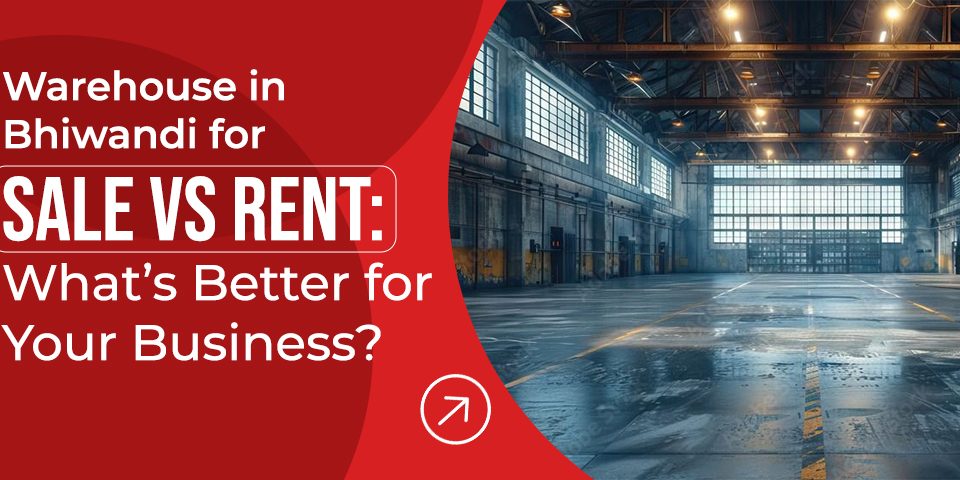
How Industrial Parks Are Driving Economic Growth in Bhiwandi
March 11, 2025
Key Warehouse Requirements for E-Commerce Businesses
April 17, 2025Top 7 Benefits of Setting Up Your Business in an Industrial Park
Industrial parks offer dedicated environments for a variety of businesses, including manufacturing, logistics, and warehousing. They provide a safe, structured work environment and robust infrastructure that can help companies scale their operations efficiently.
In addition, they also offer a range of amenities that can attract and retain employees. From on-site food options to outdoor seating, these features can boost employee morale and foster a sense of community.
Introduction
Industrial parks cater to manufacturing businesses, offering government incentives, streamlined compliance, and secure environments with 24/7 surveillance, allowing companies to focus on growth.
With multiple companies in the same industry, businesses can easily access materials, form partnerships, and reduce costs through collaboration, boosting efficiency.
Strategic locations near highways, ports, and airports provide logistical advantages, lowering transportation costs and enhancing supply chain management.

1. Strategic Location and Connectivity
Industrial parks are strategically located near transportation hubs, enabling faster product movement and efficient logistics. Their proximity to educational institutions also helps businesses recruit skilled labor easily.
These parks offer complete infrastructure, including electricity, water, and telecommunications. Many have independent power supplies, reducing outages and ensuring uninterrupted operations.
With strict safety measures and regulatory compliance, industrial parks help businesses minimize risks and enhance productivity, making them an ideal choice for growth.
Benefits of Strategic Location:
Industrial parks offer logistical advantages that reduce shipping costs and facilitate business partnerships with neighboring companies, enhancing growth opportunities.
Centralized services like security and waste management and streamlined regulatory processes make industrial parks more cost-efficient, lowering energy and maintenance expenses.
Proximity to educational institutions and residential areas ensures easy access to skilled labor, reducing turnover and increasing productivity. Additionally, their focus on sustainability and compliance fosters a responsible and efficient work environment.
2. Cost-Effective Land and Infrastructure
Industrial parks provide cost-effective spaces with pre-planned infrastructure, reducing setup costs and allowing businesses to focus on growth. Flexible lease terms enable scalability without relocation.
Their proximity to communities and educational institutions simplifies hiring and retaining skilled labor, cutting recruitment costs and improving efficiency.
With independent power grids, water systems, and advanced telecom networks, industrial parks ensure smooth operations. Their sustainability measures attract investment, create jobs, and boost property values in surrounding areas.

3. Enhanced Transportation and Logistics
Industrial parks are strategically located near highways, railways, ports, and airports, ensuring seamless transportation and reduced shipping costs. This connectivity helps businesses streamline logistics, improve delivery timelines, and optimize supply chain operations.
With dedicated infrastructure like wide roads, loading docks, and warehousing facilities, industrial parks support smooth freight handling. Reliable power and communication networks further enhance logistics efficiency, minimizing disruptions in inventory management and transportation.
The availability of multimodal transport options allows businesses to scale operations and expand their market reach easily. By reducing transit delays and enhancing distribution capabilities, industrial parks provide an ideal environment for logistics-driven industries.
4. Government Incentives and Subsidies
Industrial parks offer businesses attractive government incentives, including tax breaks, subsidies, and reduced utility costs. These financial benefits help lower operational expenses, making it easier for companies to establish and expand their presence.
Streamlined regulatory processes and compliance support further ease business operations. With simplified approvals, businesses can focus on productivity rather than navigating complex bureaucratic procedures, saving both time and resources.
Additionally, many industrial parks receive government funding for infrastructure development, ensuring top-notch facilities and sustainable growth. These incentives make industrial parks a cost-effective and strategic choice for businesses looking to scale efficiently.

5. Improved Security and Surveillance
Industrial parks provide a highly secure environment with round-the-clock surveillance, gated entry points, and controlled access systems. These measures help protect assets, ensuring businesses operate in a safe and risk-free setting.
Advanced security technologies, such as CCTV monitoring, biometric access, and on-site security personnel, minimize threats like theft and vandalism. This creates a secure workplace that enhances employee confidence and productivity.
Additionally, compliance with strict safety regulations ensures a well-monitored industrial zone, reducing liabilities for businesses. With dedicated security infrastructure, industrial parks offer a more reliable alternative to standalone properties.
Availability of Industrial Services
Industrial parks offer uninterrupted power supply, dedicated water treatment, and advanced telecom networks. These essential services ensure smooth operations and minimize downtime for businesses.
Shared resources like waste management, security, and logistics help reduce operational costs. With centralized infrastructure, companies can focus on expansion without additional maintenance burdens.
Specialized services such as warehousing, transportation, and equipment maintenance enhance efficiency. This well-structured ecosystem supports scalability and long-term business growth.
Conclusion:
Industrial parks provide businesses with strategic locations, cost-effective infrastructure, and essential utilities, ensuring seamless operations. With dedicated power grids, water supply, and telecom networks, companies can function efficiently without disruptions.
These parks also offer government incentives, tax breaks, and streamlined compliance, reducing operational costs. Enhanced security measures and a structured environment further support business growth while minimizing risks.
Additionally, industrial parks promote collaboration among industries, leading to cost savings and increased efficiency. Their proximity to transportation hubs ensures smooth logistics, making them an ideal choice for manufacturing, warehousing, and distribution businesses.




